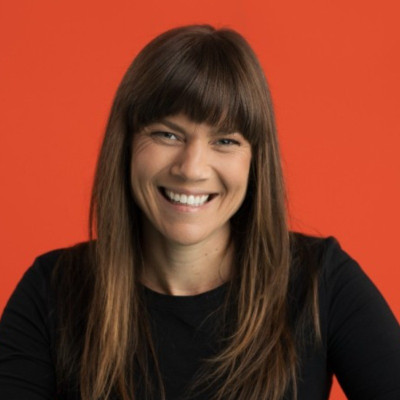With over 15 years of experience in the hospitality industry and a natural aptitude for analytics, Leigh Silkunas is passionate about driving top-line revenue for travel and technology brands.
She founded One Across in 2016 to bring clarity and cohesion to revenue management, sales and marketing.
Silkunas started her career in New York City as a revenue management trainee and advanced through progressively senior revenue management roles with Starwood and Kimpton, focusing on ramping up new properties and finding ancillary revenue streams. Curiosity about the consumer price cycle inspired Silkunas to hone her digital marketing skills and train her focus on up-funnel consumer acquisition.
Silkunas has since led digital marketing teams at Kimpton, Joie de Vivre, and Thompson Hotels and served as head of marketing at Sonder, where she led the innovative startup through its rebrand, launch, and beyond. She has been named Penn State School of Hotel Management’s Emerging Professional of the Year and included in Hotel Management Magazine’s 30 Under 30.
Silkunas has always been drawn to storytelling through numbers. Even after she transitioned from the analytics-focused role of revenue manager to broader marketing positions, data-driven strategy has remained central to her practice. One Across is built on this foundation: Silkunas uses data to sculpt strategies and discover what’s really driving performance. Silkunas sat down with Women Leading Travel & Hospitality to answer questions about her journey and share the insight she’s learned along the way.
Women Leading Travel & Hospitality: Tell us about your background. Did you imagine you would start and run your own company someday?
Leigh Silkunas: I grew up absolutely obsessed with hospitality. I drew chef hats every day in pre-school, spent months crafting the perfect birthday party, planned family vacations, and poured over hotel compendiums. I always dreamed that I would own my own something – a hotel, restaurant, or bed and breakfast – but starting a hospitality strategic consultancy was something I had never dreamed of, and it happened very organically.
WLT&H: With lots of your early influences being in hotel and restaurant operations, how did you pivot to the commercial side of the business?
LS: I went to Penn State for hotel and restaurant management, intending to work front-of-house. I enjoyed my classes, but in my junior year, I took a revenue management course, and the lightbulb went off. I was enamored with being able to apply reasoning, logic, numbers, and analysis to an industry that I loved so deeply. After every class, I rushed home to complete my revenue management homework, and I thought: “this is where I belong.” I began my professional career in revenue management, and over time, I saw how critical it is that all hotel functions are working together. You can’t manage revenue if there is no demand! I became increasingly interested in not just how consumers were making their purchase decisions but what led them to the decision in the first place.
WLT&H: What led you to create One Across?
LS: After years of rising the revenue management, marketing, and e-commerce ranks in the traditional hotel business, I was offered an opportunity I couldn’t refuse. It was early 2016 and alternative accommodations like Airbnb were just beginning to take off. There was a small company named Flatbook based in Montreal that had just raised its Series A and was looking to rebrand before launching more publicly. I was hired to lead Flatbook’s rebrand, including a new website, public relations strategy, visual identity, and go-to-market plan for the company that is now Sonder. I was very proud of my work there and learned so much from a start-up environment that I caught the entrepreneurial bug and decided to go out on my own and start One Across.
WLT&H: How did you know what One Across would be?
LS: Through my time working in-house, I saw that the most successful hotels had strong, collaborative, and innovative sales, revenue, and marketing teams working together, but more often than not, the cohesion wasn’t there. I wanted to bring my cross-discipline knowledge to assist teams in helping each other rather than working against each other. I found that the best way to do this was through e-commerce and digital marketing – an area that every function needs – as well as exposure, awareness, driving revenue. The robust analytics that comes from digital marketing allow all teams to speak the same language and measure the results through consistent KPIs.
WLT&H: What is the hardest part of running your own business?
LS: Explaining what we do! By design, One Across is meant to step in and solve a company’s challenge, and those challenges can look so different from client to client. Without pigeonholing us, I feel confident that One Across has core strengths in digital marketing strategy, commercial analytics, and training and education.
WLT&H: How does client engagement typically begin?
Most clients choose to work with us in one of three ways: long-term strategic retainers, defined project deliverables, or our just launched new service — working with boutique hotels as their one-stop-shop digital marketers — serving as the team’s digital strategist and executing upon that strategy.
WLT&H: What inspires you most in your work after working in the industry for the last 15 years?
LS: There is always a new challenge to face. I love that while all travel companies are essentially trying to do the same thing – book hotel rooms, reserve tables, and provide exceptional guest experiences – there are always new variables and no one correct solution. Every client, every site visit, and every vendor relationship allows me to think about hospitality commercial strategy in a fresh way.
WLT&H: What do you hope all hotels (and their decision makers) understand when it comes to hiring a marketing consultant/agency?
LS: That culture and chemistry matter more than anything. There will always be partners with a more specific skill set, a better pricing model, and more prestigious clients, but none of that is important if the relationship piece isn’t there — you have to like who you work with.




